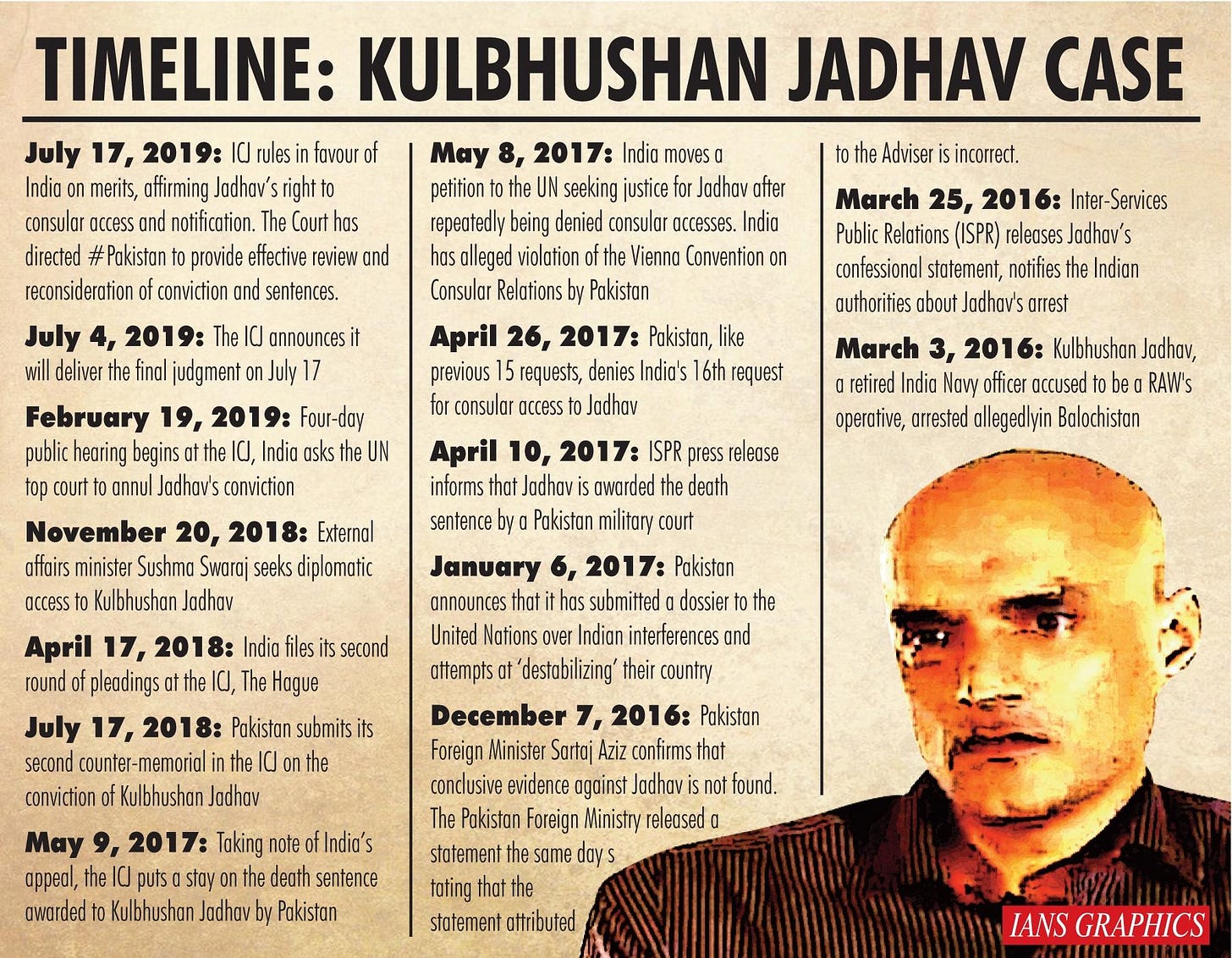US-Iran $6 Billion Hostage Deal for 5 American Citizens'— Implications for India
US Pays $6 Billion to Secure Release of Five Detained Americans in Iran: Evaluating the Lasting Geostrategic Impact for the United States and India.

Introduction
The recent agreement between the United States and Iran, involving a staggering payment of $6 billion to ensure the safe return of five American nationals, has reignited intense discussions surrounding the effectiveness, ethicality, and long-term consequences of hostage negotiations and ransom payments, especially when dealing with sovereign nations. While some contend that this significant financial transfer is not a 'ransom,' but rather a settlement for Iranian oil that had previously been supplied, the transaction inevitably raises a host of complex questions.
These have far-reaching implications for U.S. domestic policy, international diplomatic relations, geopolitical security considerations, and ethical standards on a global stage. The sheer scale of the financial commitment and the diplomatically sensitive nature of the agreement make it a subject of keen interest and concern for policymakers, security experts, and concerned citizens globally, India being no exception.
Pros and Cons from the American and Global Perspective
Pros
Immediate safety and return of the American citizens.
Eases tensions with Iran, at least momentarily.
Opens a channel of negotiation for future diplomatic talks.
Cons
Sets a dangerous precedent.
Encourages further hostage-taking activities.
Questions the moral integrity of dealing with a nation known for human rights abuses.
In summary, the immediate release of American nationals and the prospect of improved diplomatic relations with Iran are attractive short-term benefits. However, they are counterbalanced by significant long-term risks, including setting a dangerous precedent that might encourage further quasi-hostage activities under the guise of criminal justice administration, not just by Iran but also by other observing entities. Additionally, engaging financially with a nation often criticised for its human rights violations poses intricate ethical dilemmas. Therefore, the deal serves as a double-edged sword, offering both immediate advantages and long-term consequences that impact not just the United States, but also global security dynamics and ethical standards.
Precedents: The US and UK with North Korea
While not unprecedented, the recent $6 billion U.S.-Iran deal stands out due to its scale and immediate international scrutiny. Previous U.S. and UK negotiations for hostages in North Korea have also sparked debate. Such incidents not only have immediate consequences but also raise long-term questions about international diplomacy, security, and ethics, possibly signalling new risks in the diplomatic landscape.
Hostage Situations in India: A Tale of Two Episodes
Rubaiya Sayeed Episode
In the case of Rubaiya Sayeed's abduction in Jammu and Kashmir, the Indian government grappled with an intricate ethical and security conundrum. Rubaiya, the 23-year-old daughter of then-Home Minister Mufti Mohammad Sayeed, was kidnapped in December 1989, creating immense pressure on the V.P. Singh-led administration. The government eventually chose to secure her release by freeing several hardened terrorists, incarcerated for severe crimes including acts of terrorism. While this decision achieved the immediate objective of rescuing Ms. Sayeed, it opened a Pandora's box of questions regarding the long-term implications of negotiating with kidnappers and terror groups. This move also challenged the government's stance on law and order, setting a precedent that continues to fuel debate in policy discussions to this day.

Kandahar Hijacking Odyssey
In the 1999 Kandahar hijacking crisis, the Vajpayee government in India was thrust into a complex security dilemma with global repercussions. Indian Airlines flight IC 814, initially flying from Kathmandu to Delhi, was hijacked and diverted to Taliban-controlled Kandahar after being denied permission to land in Lahore by Pakistani authorities. The Indian government's subsequent decision to release high-profile terrorists, including Maulana Masood Azhar, founder of the internationally-banned Jaish-e-Mohammed, elicited divisive reactions. The lapse in seizing an opportunity for intervention when the plane stopped for refuelling in Amritsar remains a point of contention in India's national security discourse.
In the aftermath of the crisis, then-Foreign Minister Jaswant Singh personally flew to Taliban-held Kandahar with three terrorists, including Maulana Masood Azhar, to secure the release of 176 passengers and crew, among them a senior RAW agent. While the act was indeed brave, especially considering Jaswant Singh's background as an ex-serviceman, the televised images broadcast on international media were a source of significant embarrassment, if not shame, for the nation. The episode left an indelible mark on India's security apparatus and strategy, reiterating that actions taken under duress can have unforeseen and far-reaching consequences.

India Paid a Heavy Long-term Price
The release of Maulana Masood Azhar following the 1999 Kandahar hijacking had far-reaching consequences for India's internal security and geopolitical standing. Azhar's extremist group, Jaish-e-Mohammed, orchestrated the December 2001 attack on the Indian Parliament, while another group, Lashkar-e-Taiba, was responsible for the 2008 Mumbai attacks. Both attacks deepened a climate of fear and instability within India. Azhar's ongoing freedom and support in Pakistan serve as a stark warning about the complex and enduring risks tied to negotiating with terrorists.
The Kandahar episode not only exposed tactical deficiencies but also intensified debates on the ethical and strategic challenges democracies face when negotiating with non-state actors. The situation highlighted that choices made under duress can have lasting repercussions—often with ramifications that extend well beyond the immediate crisis. Azhar's continued influence and ability to evade capture amplify these intricate and long-term consequences.
Indian Naval Commander Kulbhushan Jadhav
The case of Kulbhushan Jadhav, a retired Indian naval officer arrested in 2016 by Pakistani authorities, has brought forth fresh questions surrounding international law and the effectiveness of diplomatic channels. In his recent June 2023 comments, India's External Affairs Minister, S. Jaishankar, stressed that aiding Indians in distress overseas is intrinsic to this government's ethos. He cited Jadhav's situation as "exceptional," asserting that Jadhav was "kidnapped by Pakistan and is being held contrary to the ICJ's ruling." Despite India taking the matter to the International Court of Justice and calling for provisional measures, the case remains at an impasse, casting doubt on the efficacy of international legal frameworks in such intricate geopolitical standoffs.
Jadhav's detention continues to be a cause célèbre in the fraught relations between India and Pakistan, with both nations offering conflicting accounts of his arrest—India contends he was captured in Iran, while Pakistan insists it was within their borders. The controversy has only escalated, drawing international attention to potential human rights abuses and lack of transparency in the legal process. Jaishankar's remarks reiterate the government's commitment to utilising diplomatic avenues for resolving the case, leaving no avenue unexplored for his release.
In light of these recent comments, the case serves as a grim testament to the limitations of international mechanisms in securing justice and highlights the human toll extracted by geopolitical rivalries. While the government's steadfast commitment to diplomacy offers a glimmer of hope, Jadhav's continued detention underscores the complexities involved in resolving issues that straddle the lines of national security, human rights, and international law.
The Helplessness of United Nations
The detention of UK Reuters journalists by Myanmar's military junta has cast a shadow over the United Nations' ability to effectively intervene in international hostage situations. Despite global calls for action, the UN has struggled to enforce resolutions or secure the journalists' release, revealing a lack of a cohesive international strategy to tackle such crises. This challenges not only individual nations but also questions the UN's authoritative influence, as its multiple bodies like the Security Council and Human Rights Council appear limited in their reach.
The situation highlights existential concerns for the United Nations, tasked with upholding international law and human rights. Its limitations become especially evident in high-stakes situations requiring swift, decisive action. In the absence of effective global governance, the onus falls on sovereign nations to navigate the diplomatic labyrinth, often acting unilaterally or through ad-hoc alliances, thereby sidelining the very organisation meant to mediate in such conflicts.
Our Take: Balancing Short-term Gains with Long-term Costs
The complexities of managing hostage situations put governments in a difficult position, weighing short-term objectives like the safe return of nationals against long-term risks, such as financing criminal activities or setting dangerous precedents. India's zero-tolerance policy on negotiating with terrorists serves as a deterrent, yet the fluidity of international dynamics may warrant exceptions. These should emerge only after exhaustive deliberations at the highest echelons of government and must consider numerous variables, such as evolving technological, geopolitical, and ideological threats.
In a world rife with nuanced challenges, a rigid zero-tolerance stance may not always be the most effective. Exceptions to established policies should be the result of thorough analysis and be seen not as a sign of weakness but as pragmatic responses to multifaceted, ever-changing scenarios. Therefore, when deviations occur, they should signify a calculated decision by the leadership, prepared to handle the array of associated risks.
Conclusion
In the realm of hostage situations, the Modi government in India has adopted a firm stance against ransom payments and hostage swaps, aiming to counteract the risky incentives such transactions create while setting a strong precedent against dialogue with illegal detainers. This unyielding policy serves as a backdrop to the recent $6 billion deal between the U.S. and Iran, a cautionary tale that spotlights the long-term repercussions and broader geopolitical implications of such crisis-driven decisions. While the immediate objective of rescuing hostages is both urgent and humane, these actions can have enduring effects that extend well beyond national borders. Governments, therefore, find themselves in a precarious balancing act, weighing immediate humanitarian needs against the complexities of national security and international diplomacy.
As it stands, the US-Iran deal deserves just two cheers.






